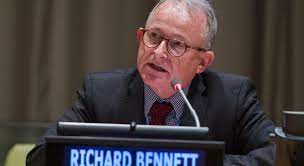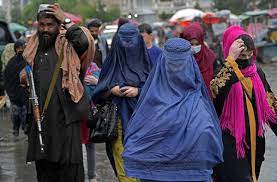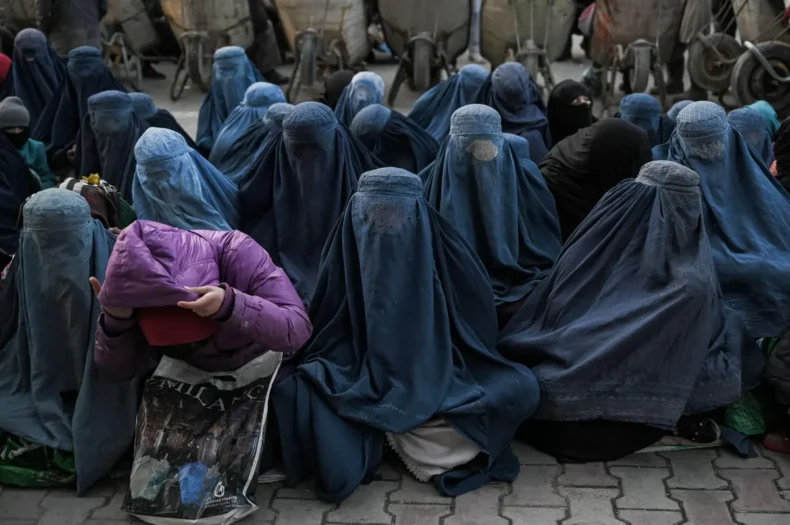Misogynistic arguments about conditions for women improving since the days gone are sure to suffer a severe hit after the recent statement released by the United Nations (UN). Special Rapporteur on the situation of human rights in Afghanistan, Richard Bennett declared that the treatment of the Afghani female population by the Taliban could amount to “gender apartheid”.
The UN Report:
Their rights continue to be violated by the de facto authorities. The institutionalized discrimination present at the heart of their ideologies is a catalyst for this grave situation. The UN defines gender apartheid as “economic and social sexual discrimination against individuals on the basis of their gender”.

A need for more exploration of this potential international crime is underway, as reported by Bennett. The report also urges the de facto authorities to restore basic rights and stop widespread discrimination. His recent visit has confirmed their situation worsening especially for people who resist or even disagree with their current ideology. Movements by Afghani legal groups have been launched to help curb gender apartheid and urge governments to act by expanding the legal definition of apartheid under international and national laws (since the current definition is restricted to race).
Taliban Response:
The Taliban administration has unsurprisingly taken a negative stance in response. They believe the statement made by Bennett and the report on the situation is a part of Western propaganda which does not reflect the correct picture. They claim to stand strong against such attempts and are in the process of implementing Islamic laws that would counter this effect.

When the Taliban first took power in 1996, the conditions were harrowing with a lack of food, water, infrastructure, and other basic amenities. Following the ouster by US forces in 2001 they were able to enroll in schools and practice a variety of professions without limitations to their clothing style. Since their comeback in August 2021, conditions have worsened again and women’s freedom to receive education and be financially independent have been curtailed. They’re using their women as bargaining chips to demand funds and help from the community at large. This is extremely dangerous since their rights should be non-negotiable.
Present Scenario:
The Executive Director of Afghan NGO Rawadari, Shaharzad Akbari mentioned that the women all talk about being buried alive in a graveyard of their dreams and ambitions. They’re breathing but not allowed to do much else without facing punishments. Their lives have come to a standstill while the lives of males around them continue to, move forward, as they are forced to lose their sense of personal identity and instead get defined by those belonging to their male relatives (husbands, fathers, sons). Stories of Afghan women choosing to take their lives out of despair and hopelessness are becoming more and more prevalent.

They’ve been banned from going to educational institutions, and parks, and even working with humanitarian agencies responsible for development activities. All of this has been done under the guise of a ‘strict interpretation of Islamic Law’. Interestingly, other neighboring Islamic countries have no such rules, and women have the freedom to seek education, pursue their dreams and actively participate in politics.
It will do the world no good sidelining the death of democracy in Afghanistan. Serious deprivation of women’s fundamental rights and harsh enforcement of restrictive measures is endangering millions of lives in the nation and constitutes a crime against humanity. Taliban in their capacity as a terrorist group are preventing females from accessing their basic rights and immediate steps need to be taken to aid the helpless people forced under this rule. It’s important to remember that this is 2023 and not 1984, and no magnitude of oppression will be tolerated.













